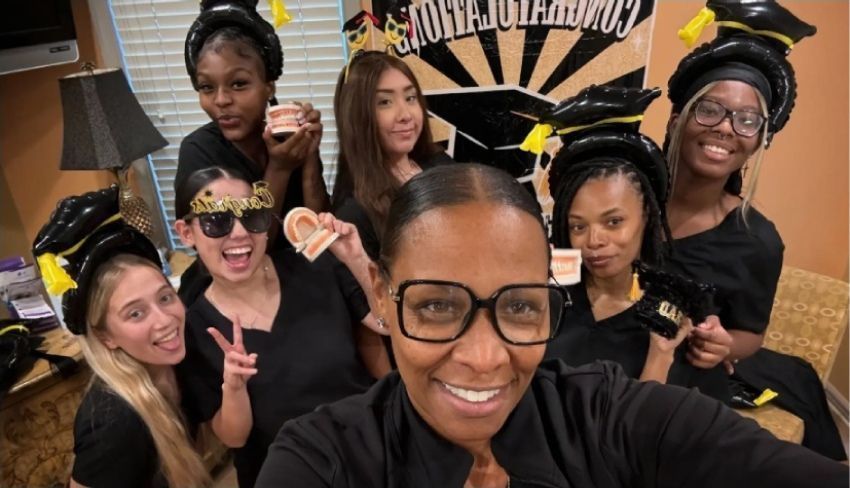What Are Basic Knowledge Requirements for Dental Assistants?
To succeed as a dental assistant, you’ll need a foundation of key knowledge areas—ranging from dental anatomy to infection control. At Birmingham Dental Assistant School, students develop these essentials early so they can confidently assist dentists, manage patients, and support smooth office operations.
Core Areas of Knowledge
Dental Anatomy and Terminology
Dental assistants must understand oral structures, tooth numbering, and basic anatomy. Knowing these terms allows clear communication with dentists and hygienists.
Infection Control and Sterilization
Sterile technique and understanding of OSHA and CDC standards are non-negotiable. Assistants must know how to clean and sterilize instruments, manage PPE, and prevent cross-contamination.
Radiography Fundamentals
Knowledge of X-ray operation and safety is part of the core curriculum. Understanding exposure levels, film positioning, and radiation protection ensures patient safety.
Dental Materials and Instruments
Recognizing tools and materials—like composites, cements, and impression materials—helps assistants stay organized and efficient during procedures.
Chairside Techniques
Assistants need to anticipate the dentist’s needs, manage suction, and maintain visibility during procedures. Good coordination makes every appointment smoother.
Communication and Patient Care
Assistants help patients feel comfortable and informed. Clear explanations, empathy, and professional demeanor are crucial.
Office Administration Basics
Many dental assistants handle scheduling, billing, and charting. Familiarity with office software and organizational skills are important parts of training.
How Birmingham Dental Assistant School Builds These Skills
The program begins with classroom lessons on anatomy, safety, and terminology, followed by lab sessions where students practice techniques using real instruments. By the time externships begin, students are familiar with every major dental procedure and confident in their abilities.
The program manager notes:
“We expect our students to master foundational skills early so they can excel in real clinical environments.”
Chris Lofton adds:
“Strong foundational knowledge accelerates learning—our students enter the field job-ready and confident.”
Preparing Before Enrollment
You can start learning some basics before school begins by:
-
Reviewing tooth anatomy diagrams
-
Learning common dental terms
-
Reading about sterilization procedures
-
Watching instructional videos on radiography or infection control
FAQs
Do I need prior experience in healthcare?
No. Birmingham’s program is designed for beginners, though an interest in science and patient care helps.
Is the course mostly practical or theoretical?
Both. Students learn theory in class, then practice those concepts in labs and externships.
Will I learn office management skills too?
Yes, administrative tasks and communication are part of the curriculum.
Birmingham Dental Assistant School ensures students graduate with the essential knowledge and confidence to begin their dental careers immediately.
You're 12 weeks from the dental assistant career you deserve.
